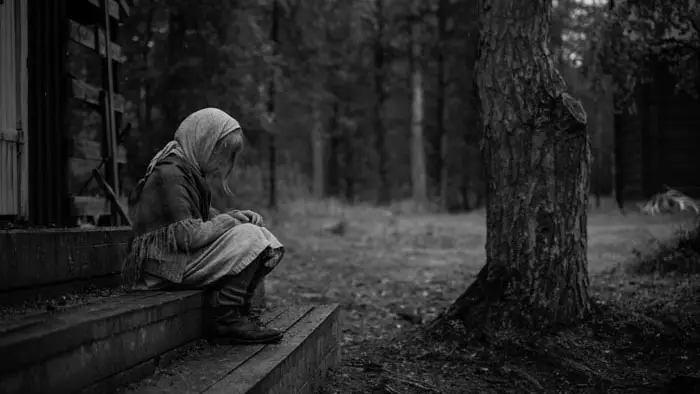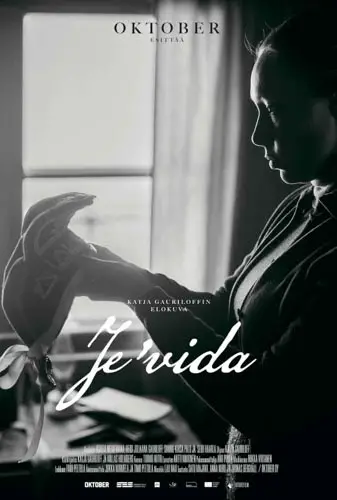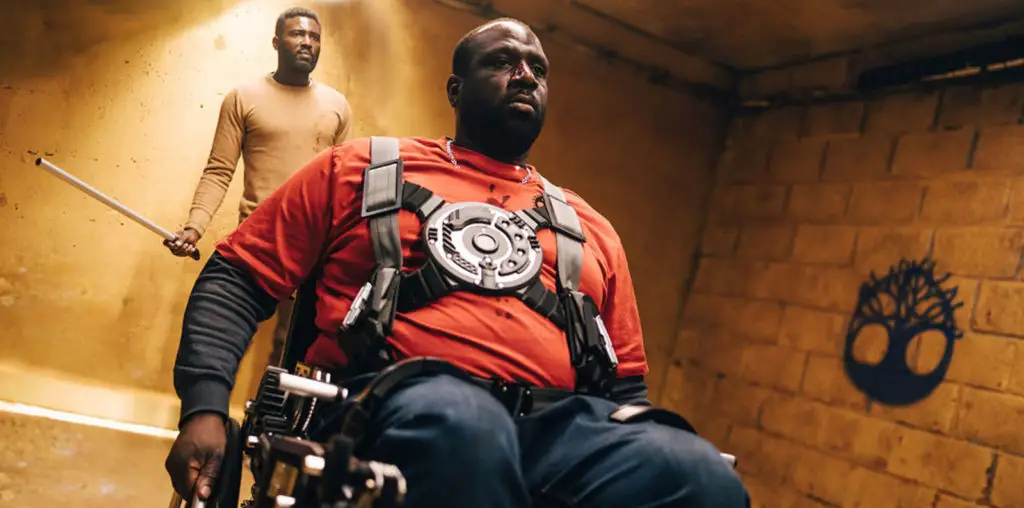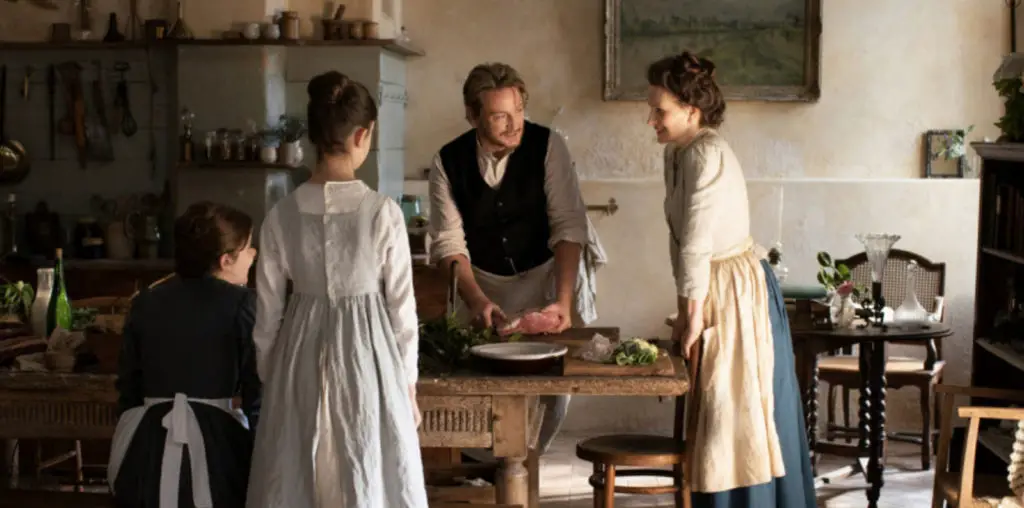
Gauriloff’s beautiful black and white 4:3 aspect ratio will draw stylistic and thematic comparisons to such films as Cold War and Ida. Every frame is gorgeous. There are no sweeping shots, cranes, jibs, or steadycams. This is an old-fashioned film that turns on the camera and lets the actors act in a breathtaking composition. The filmmaker perfectly blends show, don’t tell with only show so much. The audience is not spoon-fed exposition at any point, which makes this a slow burn. But it keeps the audience paying attention to small details to make assumptions about what is playing out in these characters’ lives.
Dreamlike imagery throughout Je’vida points to a higher meaning and creates the feeling that you are watching a painting. Gauriloff masterfully takes on global issues of war, culture, assimilation, family, and heartache and displays them at the small character level. Because the camera is locked off in one position for each scene, interactions between characters may happen off-screen and then converge into the frame.

“…a beautiful reminder for us to preserve tradition…”
New doesn’t always mean better. How often have you heard the saying, “They don’t make ’em like they used to.” This phrase is used for TVs, cars, refrigerators, men, and women. We are quick to condemn the past, and there is indeed much to, but we shouldn’t burn it all down. There is lasting truth in culture and religion that, if lost, leads us to ask ourselves the same questions Lida and Sanna ask, “Who am I?” and “What is most important in life?” There is a beautiful scene that perfectly sums up the message. Lida is leaving her grandmother at a nursing home, and the room is clean and mid-century modern but clinically cold. This stands in stark comparison to the character-rich cabin on the lake. Her grandmother’s one concern is that she doesn’t have her portrait of the Virgin Mary, to which Lida says she will get a “new” one.
Je’vida highlights how Lida has entirely lost sight of what is important in life. Forget your family. Forget your God. You can get a new family. You can get a new god. In Lida’s case, all that you think is important can be sold for a song or a new pair of shoes. Focusing on the destruction of war on the familial level is a beautiful reminder for us to preserve tradition and the family and remember what is truly important in life. In a scene between Lida and her grandfather, she asks him why he didn’t fix a hole in his fishing net. He explains that a good net doesn’t mean it’s free of holes. Sometimes, to get colorfully wise advice, we need to see it in black and white.

"…every frame is gorgeous."


